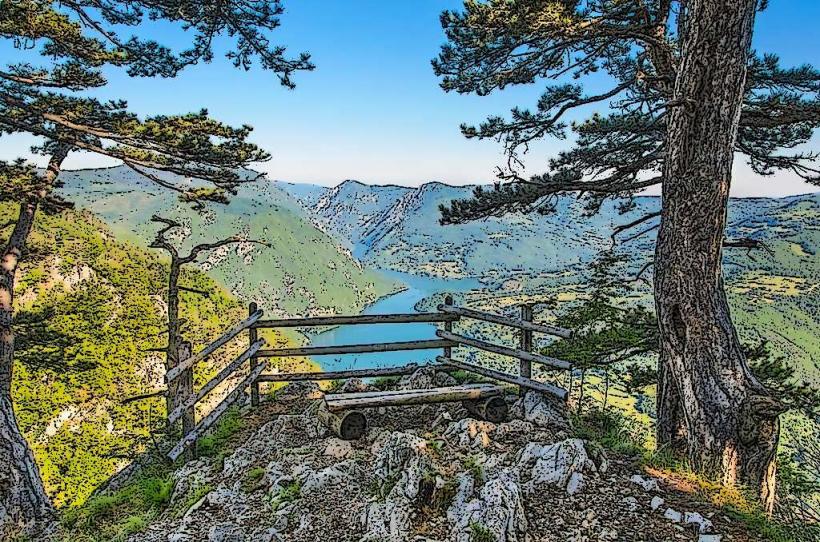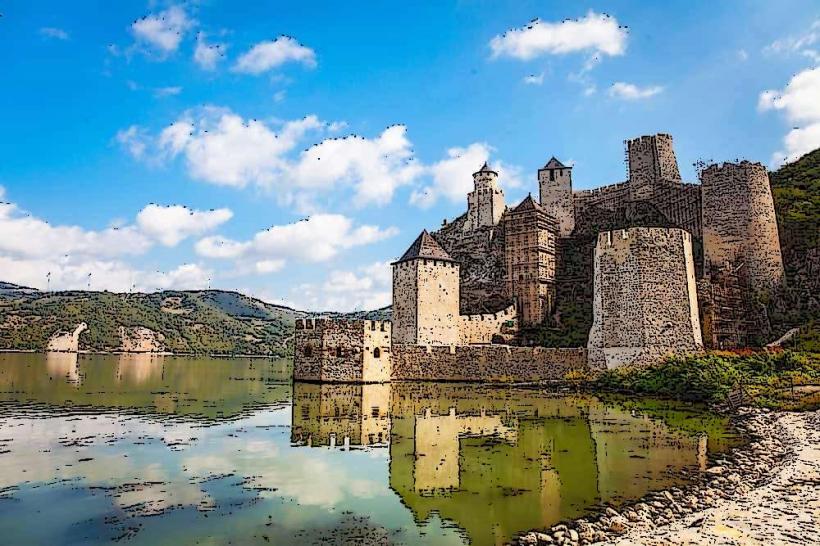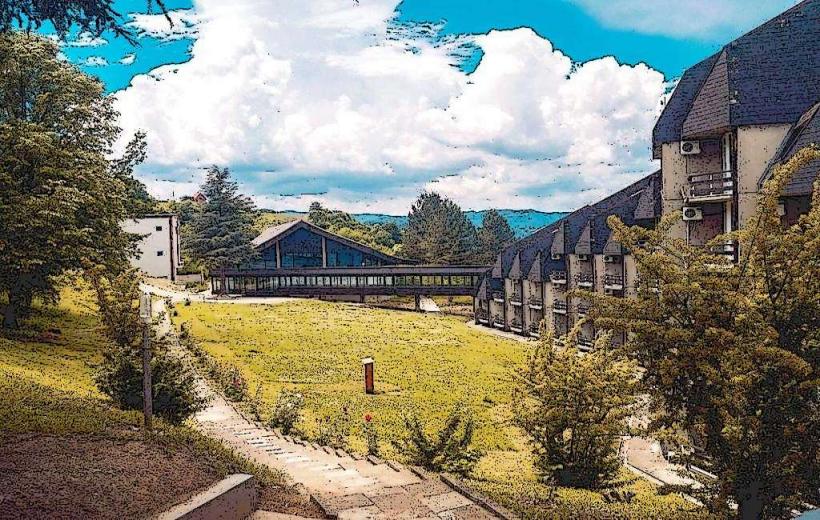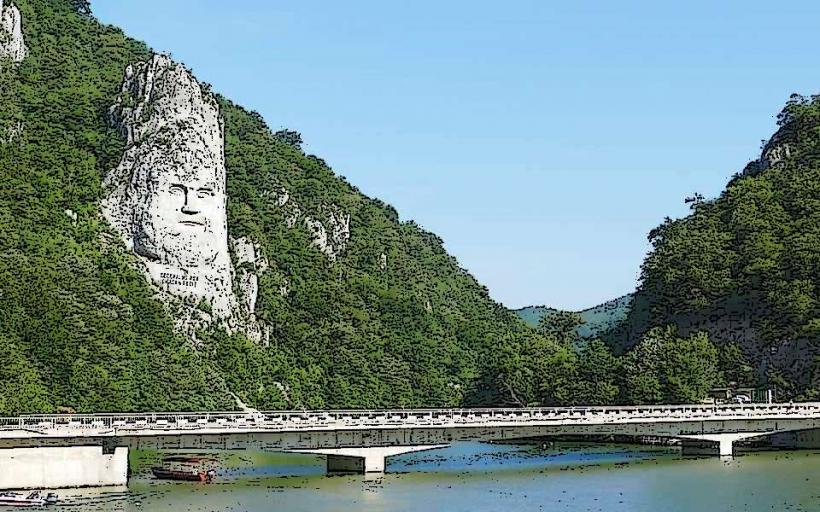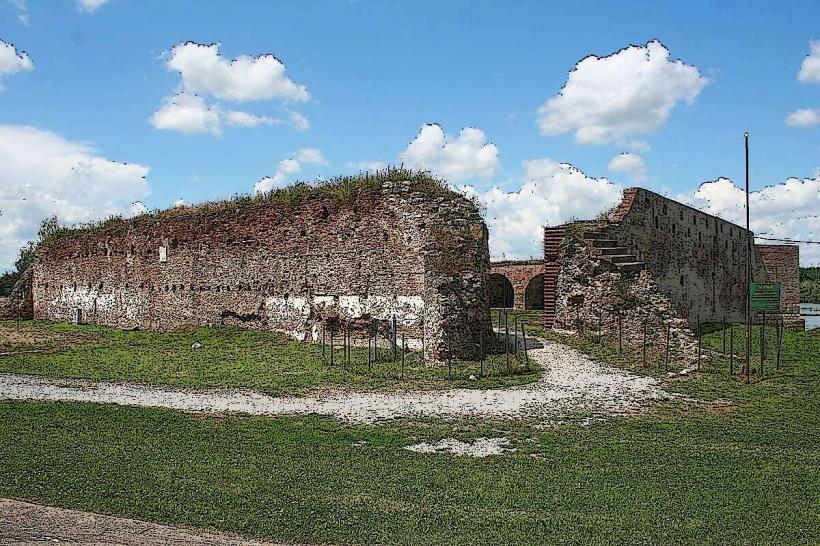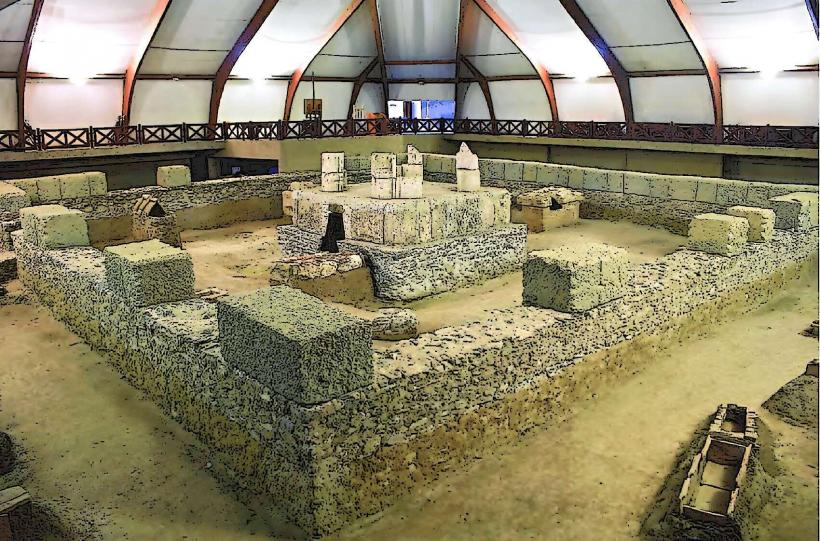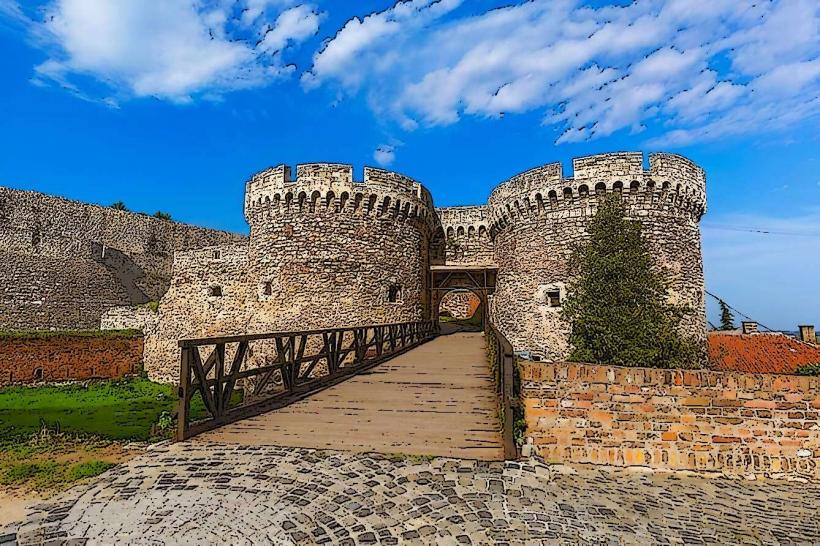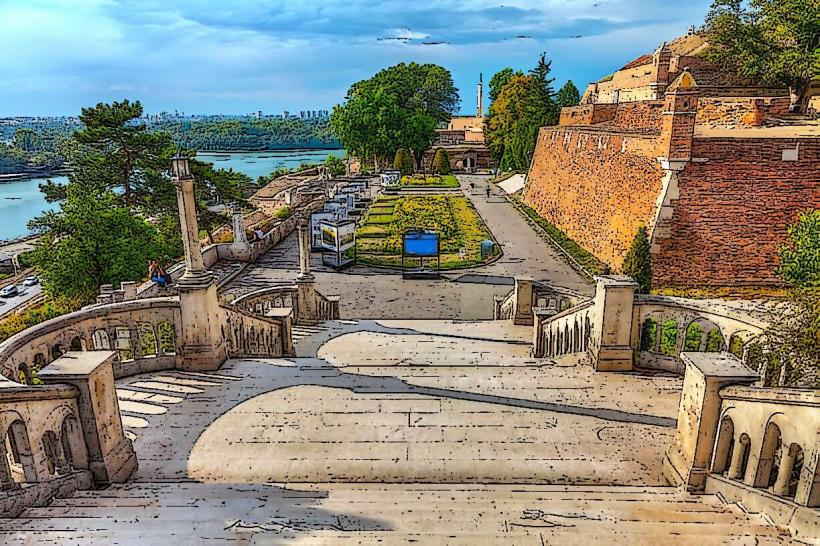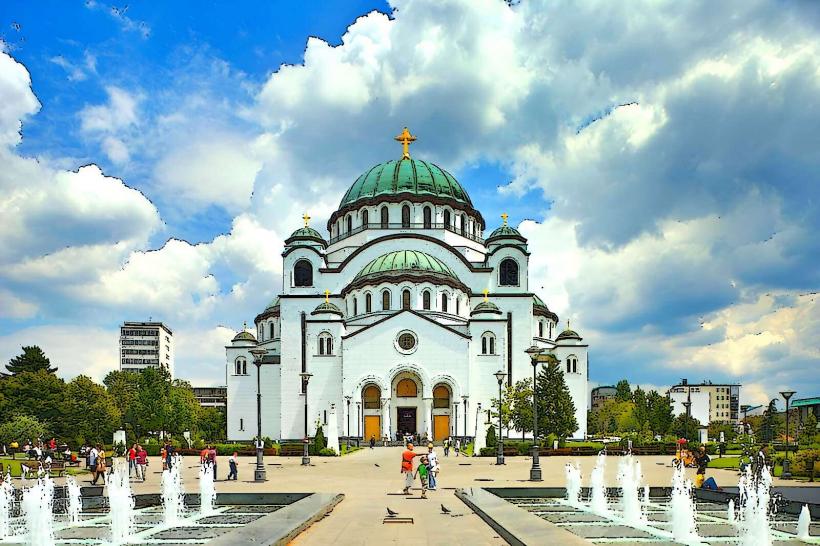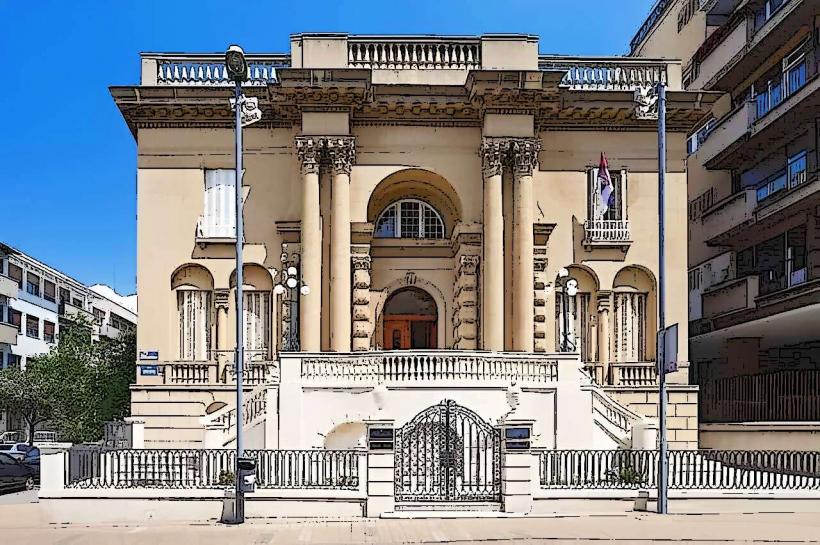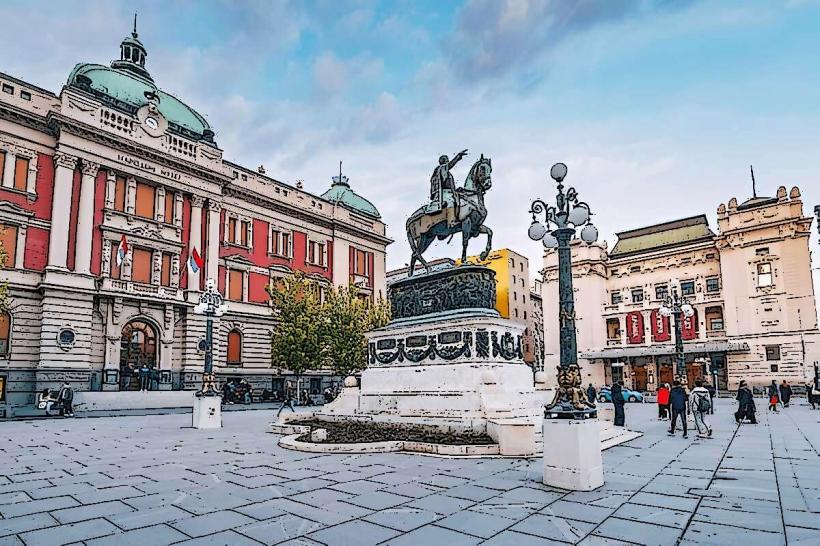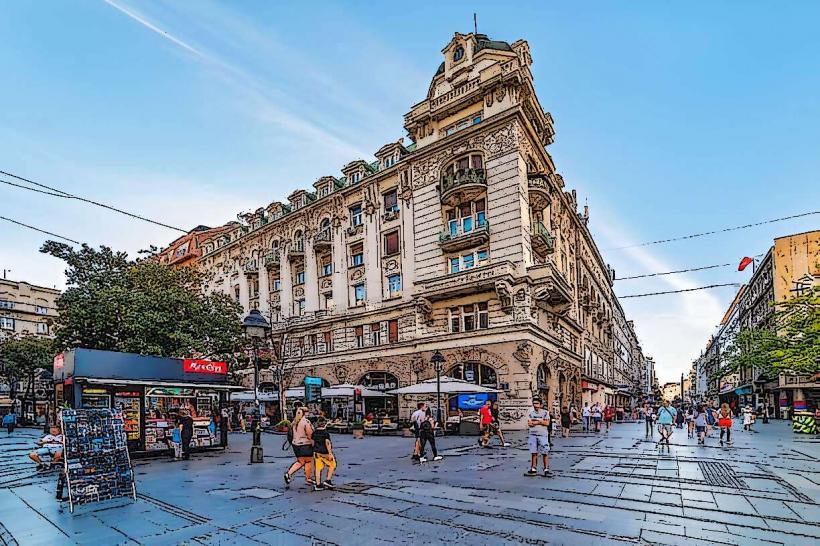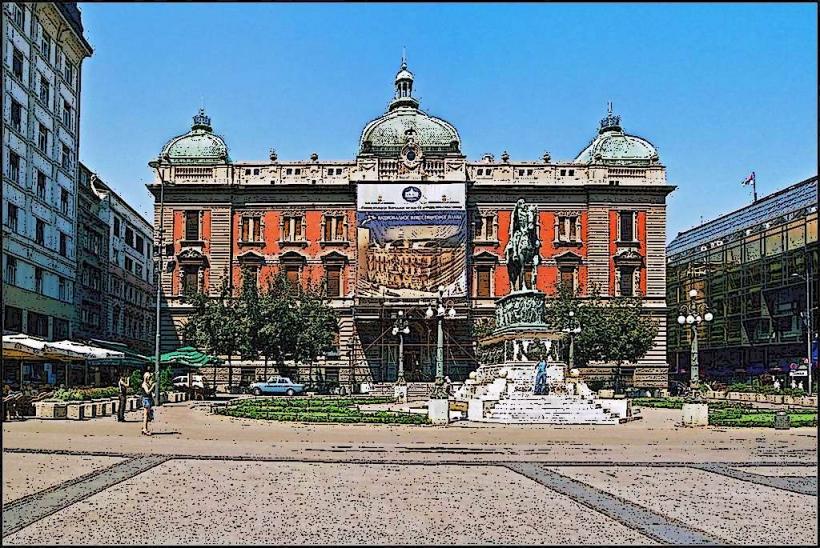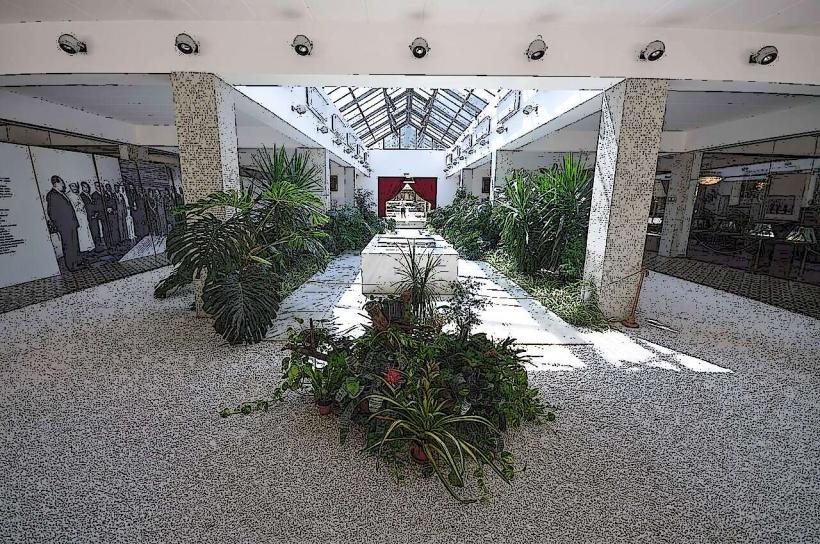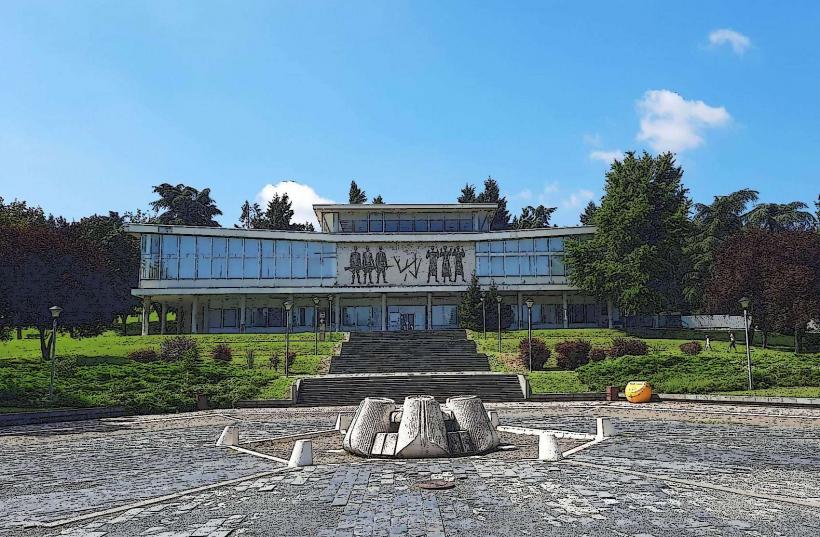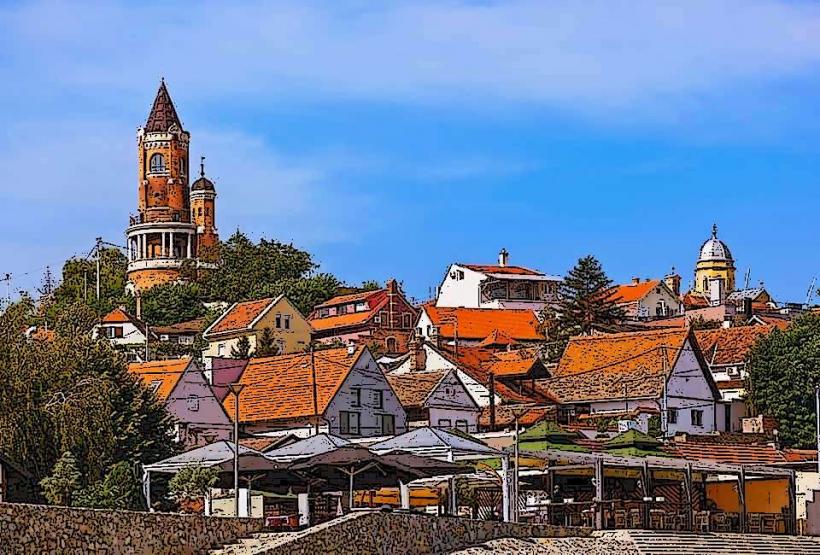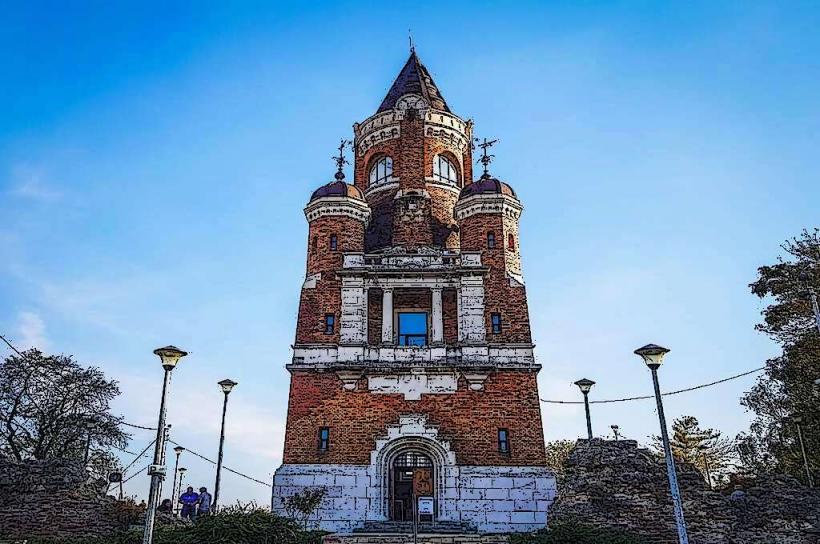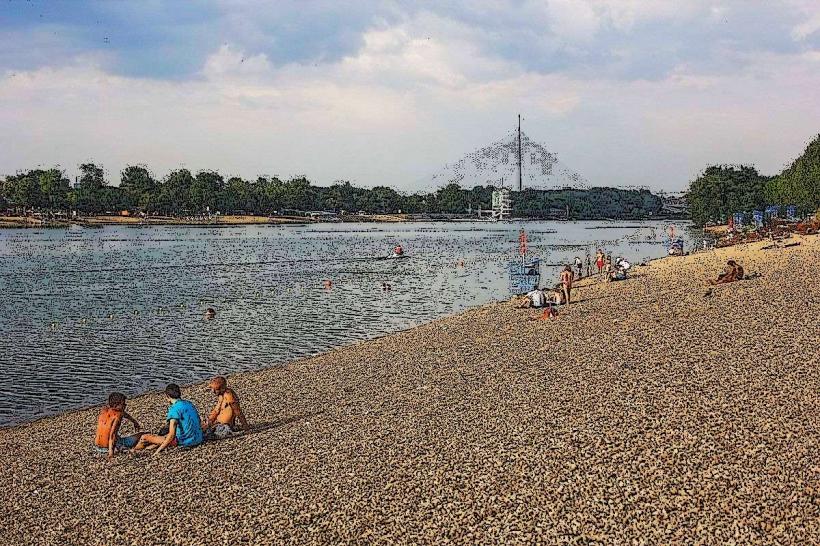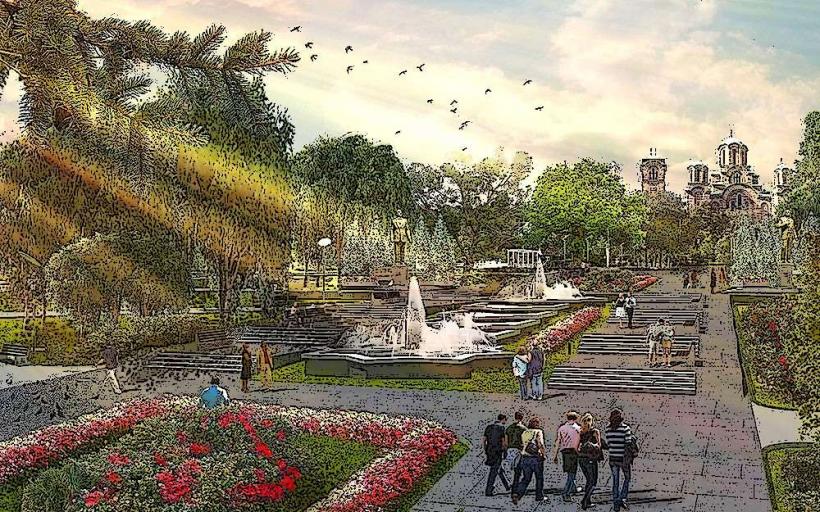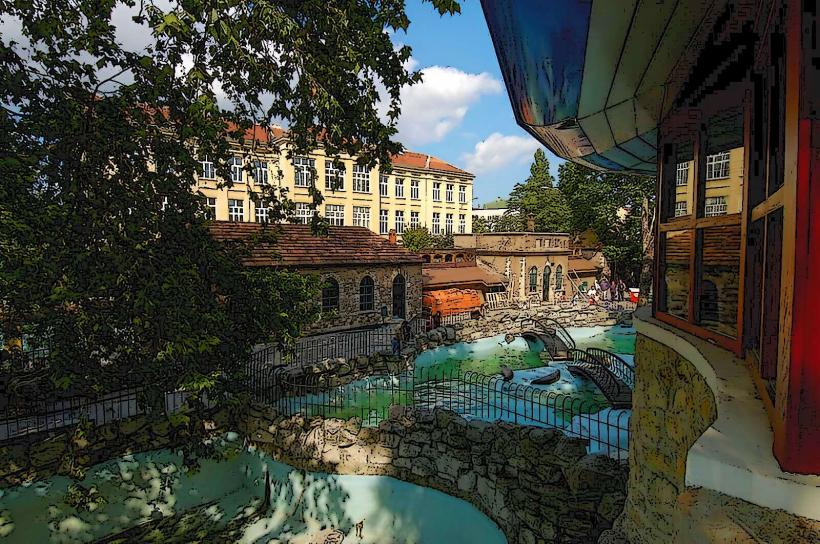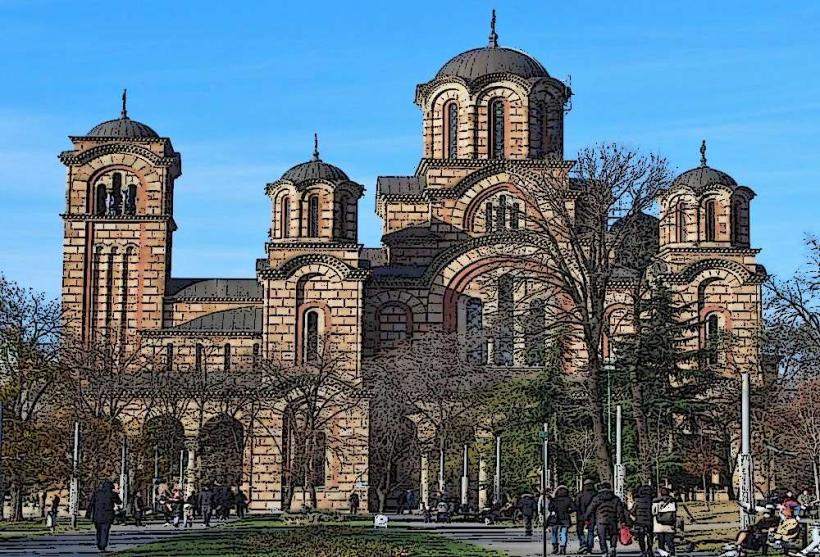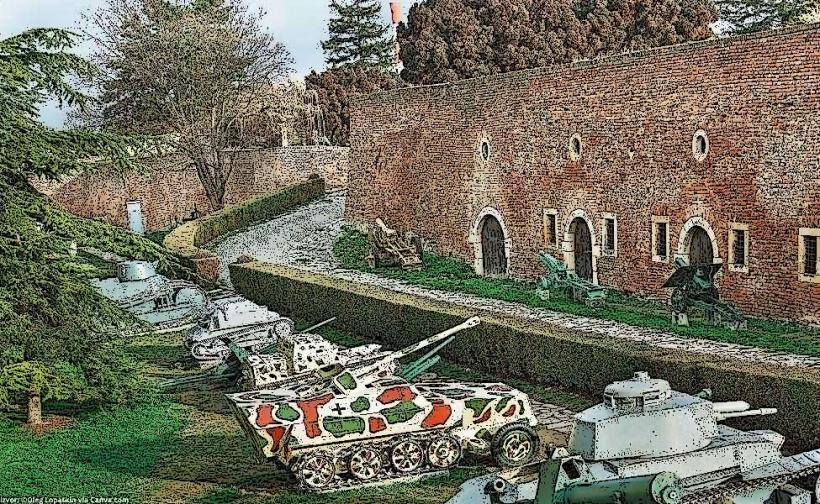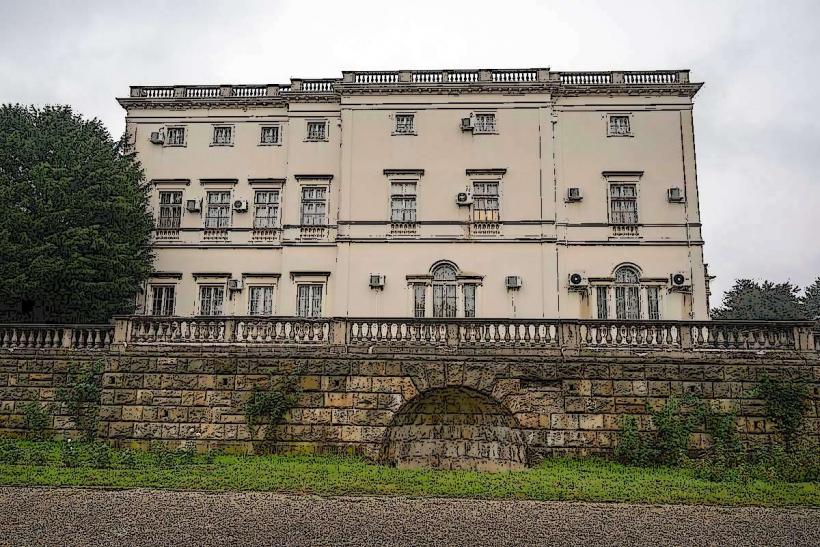Information
Landmark: Avala TowerCity: Belgrade
Country: Serbia
Continent: Europe
Avala Tower (Avalska televizija) is an iconic landmark located on Mount Avala, approximately 16 kilometers southeast of Belgrade, Serbia. The tower is one of the most recognizable symbols of the Serbian capital and offers stunning panoramic views of the surrounding landscape. It stands as a testament to modern engineering and Serbia's telecommunications infrastructure, while also holding cultural and historical significance.
Historical Background:
The Avala Tower was originally built between 1961 and 1965 as a telecommunications tower to serve as a transmission point for radio and television broadcasts in the Belgrade region. Its construction was part of a broader initiative to improve the telecommunications infrastructure in Yugoslavia, following the rapid development of television broadcasting across the country.
The tower was designed by architect Uroš Nešić and was an example of brutalist architecture, featuring a sleek, modern design that was typical of the era. It stood at a height of 202 meters (663 feet), making it the tallest structure in the former Yugoslavia and one of the tallest towers in Europe at the time of its completion.
Destruction and Reconstruction:
In 1999, during the NATO bombing of Yugoslavia, the original Avala Tower was severely damaged. The bombing specifically targeted communications infrastructure, and the tower was struck by a missile, which caused the upper portion of the structure to collapse. The original tower was rendered unusable, and it remained in a damaged state for many years.
However, the significance of Avala Tower for both Serbian national pride and telecommunications led to efforts to reconstruct it. After extensive planning and fundraising, the Serbian government embarked on a reconstruction project in the early 2000s. The rebuilding process was completed in 2010, using modern techniques while preserving the tower's original design. The reconstructed Avala Tower now stands at 205 meters (673 feet), making it one of the tallest towers in Serbia.
Architectural and Engineering Features:
The Avala Tower is a remarkable feat of engineering and design. Some key features include:
- Height: The tower stands at 205 meters (673 feet) tall, including its antenna. It was designed to provide extensive coverage for radio and television broadcasts in the region, allowing for clearer signals across Belgrade and surrounding areas.
- Material: The tower is made of reinforced concrete, and its sleek, cylindrical shape is a clear example of modernist architecture.
- Observation Deck: One of the tower's most popular features is its observation deck, located at a height of 122 meters (400 feet). From here, visitors can enjoy breathtaking views of Belgrade, the Sava River, and the surrounding Avala mountain region. On clear days, the view stretches as far as the Pannonian Plain.
The design of Avala Tower is also notable for its aesthetic appeal, with the sleek lines and minimalist form contributing to its status as a symbol of modernity in Serbia.
Significance and Role:
Telecommunications Hub: The Avala Tower continues to play an essential role in Serbia's telecommunications infrastructure. It is primarily used for the broadcasting of radio and television signals, making it crucial for media and communication in Serbia. The tower is a key element in the distribution of television and radio content to the broader region.
Tourism and Symbolism: The reconstructed Avala Tower has become an important tourist attraction in Serbia. Visitors can take an elevator to the observation deck for panoramic views of Belgrade and the surrounding countryside. The tower is also a symbol of Serbian resilience, standing as a tribute to the country’s recovery after the destruction it faced during the 1999 NATO bombing.
Cultural Importance: Avala Tower is an iconic landmark, often featured in both historical and modern representations of Belgrade. It is a reminder of Serbia's progress in telecommunications and engineering, and it has become a symbol of national pride. Its location on Avala Mountain also places it within an area of natural beauty, contributing to the tower’s overall cultural and symbolic significance.
Environmental and Ecological Value: The tower is located within the Avala Mountain area, a popular spot for hiking and nature lovers. The surrounding region is known for its lush forests, rich biodiversity, and protected natural areas, making it an attractive destination for eco-tourism as well. The combination of the tower's modernity and the area's natural beauty creates a unique experience for visitors.
Visiting Avala Tower:
Accessibility: Avala Tower is easily accessible from Belgrade, located just a short drive from the city center. There is a paved road that leads up to the base of the tower, and visitors can also reach the tower by public transport or private vehicle. The tower is located in Avala Mountain Park, a popular destination for outdoor activities.
Observation Deck: The observation deck of Avala Tower offers sweeping views of Belgrade, the surrounding hills, and the distant plains. Visitors can enjoy 360-degree views, with several viewing platforms that allow for a close-up look at the landscape. On a clear day, you can see Avala Mountain, Ada Ciganlija (Belgrade's river island), and even Southeastern Europe.
Educational Significance: Visitors can also learn about the history and reconstruction of the tower through informative exhibits and displays at the site. The tower’s importance in both Serbia's telecommunications history and its symbolic role as a national monument is highlighted in these exhibitions.
Opening Hours and Fees: The tower is typically open for visitation from morning until evening. There is an entrance fee to access the observation deck, and discounts are often available for students and groups. The tower remains closed on certain holidays or during severe weather conditions.
Conclusion:
The Avala Tower is more than just a telecommunications tower— it is a cultural icon that embodies both modernity and resilience. Reconstructed after its destruction in 1999, it stands as a symbol of Serbia’s strength and technological advancement. Whether you are interested in engineering, history, or simply looking for a place to enjoy panoramic views, Avala Tower offers an unforgettable experience that combines Serbia's past with its present.

